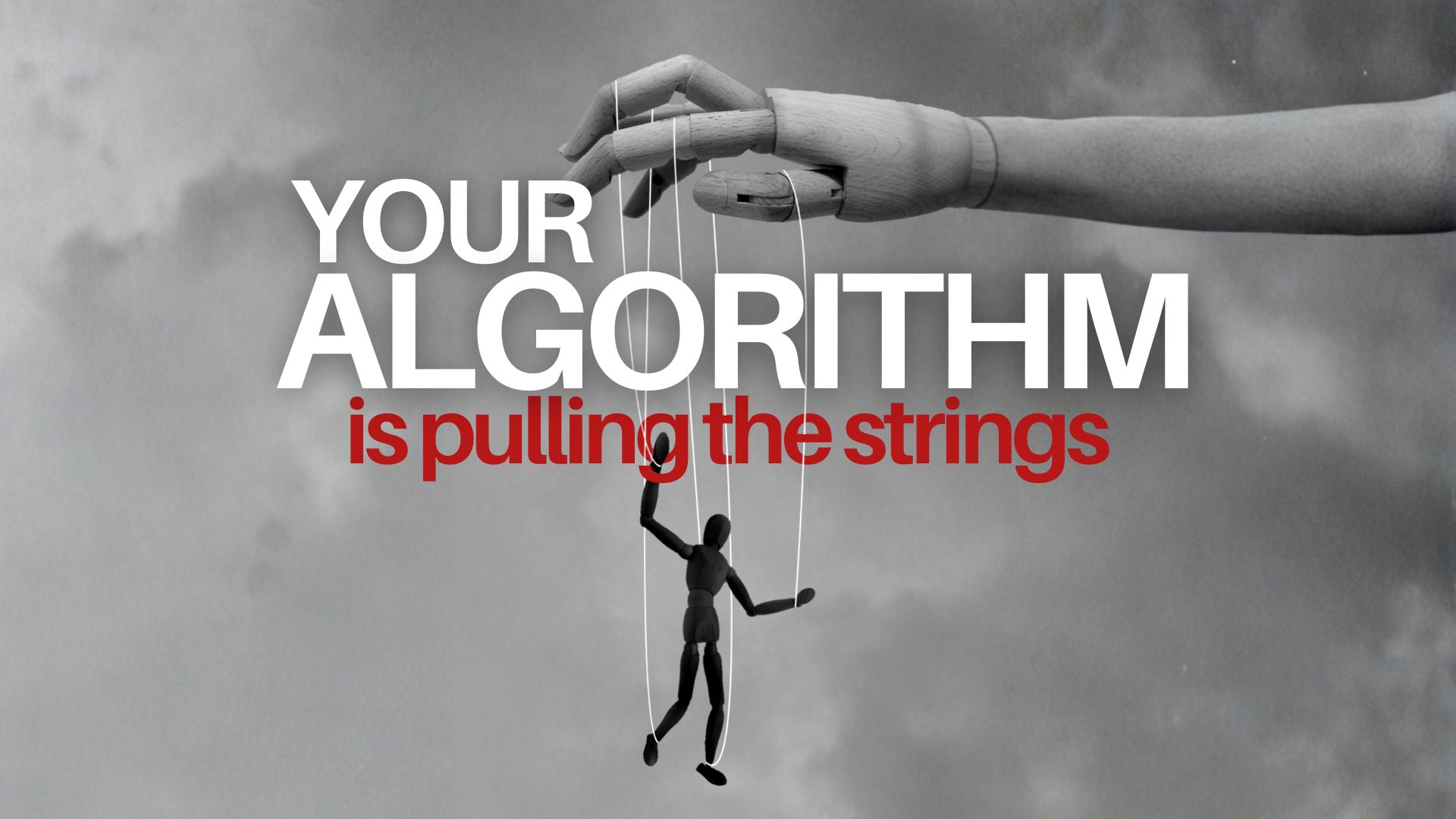Ever tried convincing a rescue dog that their new life is legit? The cage is open. The snacks are flowing. Belly rubs on demand. And still, there’s Fido, curled up in the corner, giving you the side-eye, clearly unsure this isn’t some bait and switch. Afraid when you approach, unwilling to play and be…well, like a dog. The pain of the past, the abuse, the uncertainty, has completely transformed a fun-loving, affectionate, playful dog into a wreck. What a tragedy. TLDR
Some days, honestly, we all end up acting like that dog, more freaked out by good things than a cat at a cucumber convention. Instead of chasing joy, we chase after worries and drag our old scars everywhere we go. We let the mess-ups, the labels, the “not-good-enoughs” set up camp in our heads. Maybe it’s brokenness from the past, a relationship gone sideways, or just that nagging sense that everyone else got a user manual for life and you missed orientation.
Sound familiar? You’re definitely not alone.
So, Why Are We Still in the Corner?
Have you ever heard about the flea experiment? Fleas are placed inside a jar with a lid. At first, they jump and slam their heads against the lid. After a while, they learn not to jump so high. Eventually, they forget that they can jump higher.
Even when the lid is taken off, those fleas never jump out. The pain and limitation they experienced in the past have crippled them from living into their true potential and enjoying freedom.
A lot of us are just like those fleas. God offers us freedom and a fresh start, but instead of cartwheeling into joy, we tiptoe in, suspicious and scared.
Maybe your story looks more like this:
- You’re up at midnight, scrolling through your phone, half-convinced that if you just find the right inspirational quote, you’ll finally get over that one cringe moment from ninth grade. You rehearse conversations (that never happened) in the shower.
- Or maybe you’re the person who keeps everyone laughing, but secretly wonders if people would still stick around if they saw the messy behind-the-scenes footage of your life. You double-check your texts before you send them..just in case. Then you read the text again after you sent it.
- Some days, you’re pretty sure something is deeply wrong with you, but you do your best to make sure no one points it out. That constant background hum of guilt and shame feels normal, even when you wish it weren’t.
Shame is believing that something is wrong with you because of mistakes you’ve made or things that have been done to you. It becomes an identity. “I am wrong.”
Guilt is different. It is a conviction that you have done something wrong. Sometimes guilt is misplaced, but when rightly understood, it leads to conviction. Conviction leads to change and making things right.
Guilt can either spur positive change or descend into shame.
Which will you choose? How will you overcome?
Like a dog that could be happy, carefree, playful, napping, and cuddling, what are you missing out on because you are stuck in a cycle of guilt and shame?
This is the heart of overcoming guilt and shame: learning to jump higher than the lid and stepping into the freedom you have been given.
Overcoming Guilt and Shame: The Trust Issue
Here is the honest truth.
Overcoming guilt and shame is not just about saying the right things or showing up once in a while.
For many of us, there is a gap between what we say we believe and what we actually trust deep down.
Many of us believe in Jesus.
We nod along with the idea that we are loved, forgiven, and free.
But trusting what He says about who we are feels like a whole different challenge.
If you are on this journey of overcoming guilt and shame, you will discover the real challenge is letting those promises sink in.
It is about changing how you see yourself.
It changes how you talk to yourself.
It changes how you get up in the morning and face the day.
Now, if you are skeptical about church or even about Jesus, that’s completely understandable. Maybe you’re tired of hearing phrases that feel distant, or these ideas seem hard to connect with your real life.
That’s okay.
This is not just a religious slogan or a line to say.
It’s about absolute freedom.
Hebrews 10:22 says, “Let us draw near to God with a sincere heart and with the full assurance that faith brings.”
Don’t just stand awkwardly at the door and peek inside.
Step through. Everything good is waiting right there.
Trusting what He says is the key to overcoming guilt and shame.
It is not reserved for those who have it all together.
It is for anyone who decides to step inside, to trust, and to live in freedom every day.
The Top 3 Things Keeping Us in the Cage
When you are on the path of overcoming guilt and shame, there often feels like an invisible cage, holding you back from stepping fully into freedom. That cage isn’t always obvious, but it’s built with very real walls. Let’s take a look at the top three things that keep us stuck, and how believing the right things about who we are can set us free.
1. What Other People Think
Ever feel like your life’s a reality show and the audience is constantly voting you off?
People’s opinions can feel huge, like they carry the final say on who you are and what you deserve.
Think about avoiding a group because you fear they’ll judge your past mistakes. Even if you’ve changed, the fear of their opinion keeps you isolated and stuck in shame.

Here’s the truth: other people’s opinions might matter, but they do not actually decide your freedom.
When overcoming guilt and shame, learning to care less about being “liked” and more about who you really are is enormous progress. Freedom grows when we stop seeking approval as our source of identity and start trusting, deep down, that we are enough. If you want to believe what Jesus says about you, you should know what he says. Check out this article
Remember, even the most popular people online have a story of struggle, doubt, and shame behind the scenes.
2. Holding Onto Control Too Tightly
When guilt and shame weigh on us, a common reaction is to try and control everything around us. This grip offers the illusion of safety and helps avoid facing painful feelings. But holding on so tight doesn’t free you; it actually traps you deeper.
Imagine constantly checking your work emails or replaying conversations because you’re afraid one slip-up will reveal your “unworthiness.” Your tight control is a way to mask guilt and avoid vulnerability.
Trying to control outcomes, emotions, and even relationships becomes a survival tactic learned from past wounds. Yet, control often hides a core fear: if you don’t manage everything perfectly, your mistakes, guilt, or shame will be exposed.
Actual progress in overcoming guilt and shame usually requires loosening that grip.
Letting go of control means you’re no longer acting out of fear of being “found out” or unworthy. Instead, you begin to trust your true identity beyond your past.
3. Fear That Salvation or Freedom Isn’t Secure
This fear keeps many stuck in guilt and shame because it causes us to doubt whether real healing is possible for us. If freedom isn’t sure, we act as if the past defines our future.
Picture waking up anxious about whether you’re truly forgiven or free. You hesitate to fully embrace a new identity because deep down you believe the past will always hold you back.
Psychologically, that fear feeds shame’s narrative: “I am broken beyond repair.”
It can cause paralysis, lingering self-doubt, and avoidance, washing over daily life like a shadow.
But lasting overcoming of guilt and shame comes when you stop questioning your worthiness and instead trust that freedom has already been given. When you believe your salvation or healing is secure, the power of shame begins to dissolve.
Overcoming Guilt Versus Shame: The Battle Within
Now that we’ve identified some of the biggest things keeping us stuck, it’s essential to understand the difference between guilt and shame, because overcoming guilt and shame starts with knowing what you’re really facing.
Guilt is the feeling that you did something wrong. It’s specific, focused, and often helpful. Think about guilt as the internal alarm that says, “Hey, I messed up here. Time to make it right.” When we listen to guilt and respond well, it can be a powerful motivator to change, seek forgiveness, and grow.
Shame, on the other hand, is much broader and deeper. Shame says, “I am wrong. I am bad. I am unworthy.” It attacks your identity, not just your actions. Shame traps you in the past and keeps you from moving forward confidently.
The tricky part is that when guilt goes unchecked, it often turns into shame. Overcoming guilt and shame means learning how to deal with guilt healthily before it turns into a destructive shutdown of your self-worth.
You might find yourself stuck in shame when you replay old mistakes over and over, feeling that your past defines you, or when you avoid connection because you believe you don’t deserve love or forgiveness.
But there is hope. The process of overcoming guilt and shame is not about pretending you never fail. It’s about reconnecting with your true identity, the one that is not defined by your mistakes but by grace and truth.
Recognizing the difference between guilt and shame is a vital step toward freedom. The journey ahead is about embracing that you are loved beyond your failures and learning to walk confidently in that truth every day.
7 Practical Steps for Overcoming Guilt and Shame
Overcoming guilt and shame is a journey that takes practical steps and heartfelt trust. At the core of this journey is trusting what Jesus says about you. His truth rewires how you see yourself and frees you to live fully.
Here are seven practical steps to help you begin overcoming guilt and shame and embrace the freedom Jesus offers.
1. Acknowledge Your Feelings
The first step is to honestly recognize the guilt or shame you carry. Naming these feelings brings them into the open where healing can begin. Write it down or talk to someone you trust. Silence only strengthens shame. You may recognize shame by the areas of your life you are trying to hide.
2. Accept Responsibility Without Self-Condemnation
Admit your mistakes, but do not let shame define your identity. Jesus reminds us that we are forgiven and loved despite our failures. Accepting responsibility, partnered with God’s grace, allows for growth without being trapped by past mistakes.
3. Challenge Negative Beliefs with Jesus’ Truth
Shame whispers lies like “I am unworthy” or “I am a failure.” Trust the words of Jesus who calls you dearly loved, accepted, and made new. Replacing shame’s lies with scripture and truth is life-changing.
4. Practice Self-Compassion
Treat yourself with the kindness Jesus shows you every day. When guilt and shame rise, respond gently. Remember you are human and perfectly loved despite imperfection.
5. Seek Support and Community
Shame thrives in isolation. Find friends, mentors, or a faith community who will speak God’s truth over you and walk with you without judgment. Connection is vital on the road to freedom.
6. Embrace Forgiveness and Grace
Jesus’ sacrifice offers you complete and lasting forgiveness. Accepting this grace is the key to releasing guilt and shame and stepping into your true identity as God’s beloved child.
7. Take Positive Steps Forward
Use guilt as a guide to healthy change, not shame’s prison. Set small goals aligned with your renewed identity in Christ. Each step forward strengthens your freedom and confidence.
Bringing It All Home: Your Invitation to Jump Higher
Let’s be honest for a minute. Overcoming guilt and shame is not some neat, feel-good checklist.
It’s messy.
It’s awkward.
It can feel like a clumsy dance where you keep stepping on your own feet.
Some days, you might even feel like a rescue dog who can’t believe the cage is genuinely open.
Here’s a secret: the cage isn’t locked anymore. The door is wide open. And at our church, one of the best ways we celebrate that freedom is through New Life Sundays. These days are about baptism; ways we make the abstract real and bring grace deep into our bones. Baptism isn’t just a splash of water; it’s like telling your past mistakes, “Thanks, but no thanks.” It’s a public “I believe” moment where grace stops being just a word and starts being something you feel in your soul.

So, maybe you’ve been wondering if this could be your season for a fresh start. If so, New Life Sundays might be precisely what you need.
One more truth: freedom is a journey, not a magic wand. Trust builds slowly, one day at a time. Some days you’ll stand at the door, nervously checking to see if you really belong and decide instead to bravley step in.
If you’ve made it this far in the blog, you’re already moving forward. But don’t journey alone. Our newsletter is more than just emails. It’s doses of encouragement, practical tips, biblical truths, and yes, the occasional silly video or meme because healing can use humor.
By signing up, you become part of a vibrant community learning to overcome guilt and shame by trusting what Jesus says about us. Your past won’t pen your future. The best chapters are still unwritten, full of hope and possibility.
Ready to step into freedom? Maybe even take the plunge with baptism on a New Life Sunday? Click below to join our newsletter. Let us help you jump higher than the lid holding you back.
We are cheering you on every step of the way in Christ.
Want to go Deeper?
I want to invite you into a conversation about something many of us carry quietly, our brokenness and the masks we wear to hide it. I know how exhausting it can be to show up feeling like you have to perform or pretend to belong. That’s why I wrote “How Brokenness Becomes the Gateway to Belonging.”
This blog isn’t about polished answers or easy fixes. It’s an honest look at how our brokenness, the very part we often want to hide, can become the place where healing starts. It shares how Jesus meets us right in that broken, messy place; not to condemn, but to call us into true belonging.
If you have ever felt unseen, rejected, or like you had to earn your place in church or community, this is for you. It’s about moving past the masks and performance to step into real grace and acceptance. It’s an invitation to be your whole self, even the parts you think don’t belong.
I hope you’ll read it, reflect, and take your next step toward freedom and belonging.
You are not alone. You belong.
Too Long Didn’t Read
Imagine trying to convince a rescue dog that their new life is safe and good. The cage is open, snacks are available, and belly rubs are ready. But Fido curls up in the corner, unsure and afraid to trust. This dog reflects how many of us react to healing from past pain; afraid to let go and live freely.
We carry old wounds, scars, and shame that keep us stuck. Like the infamous flea experiment, we’ve learned limits through past pain and refuse to believe we can jump higher or live freer. This mindset traps us in guilt or shame, making us avoid joy and connection.
Yet healing is about learning to trust again, especially what Jesus says about us. It’s about overcoming fear, releasing control, and believing that freedom is possible.
This journey demands more than just saying the right words. It’s about letting God’s promises reshape how we see ourselves and step into genuine freedom. Choosing to overcome guilt and shame means deciding which voice you’ll listen to, and deciding to jump higher than what’s holding you back.




Leave a Reply